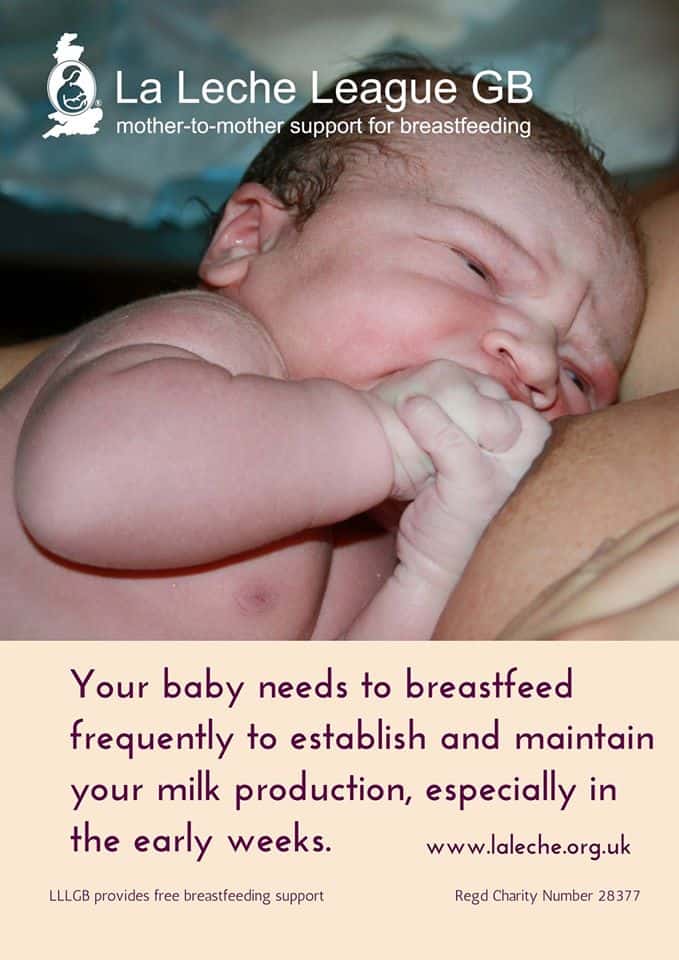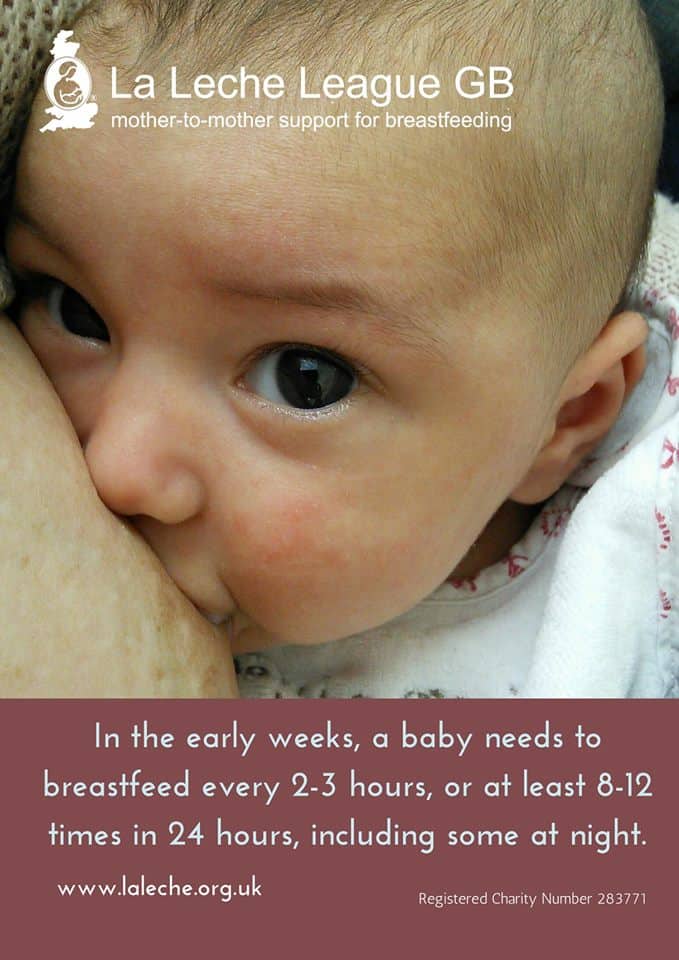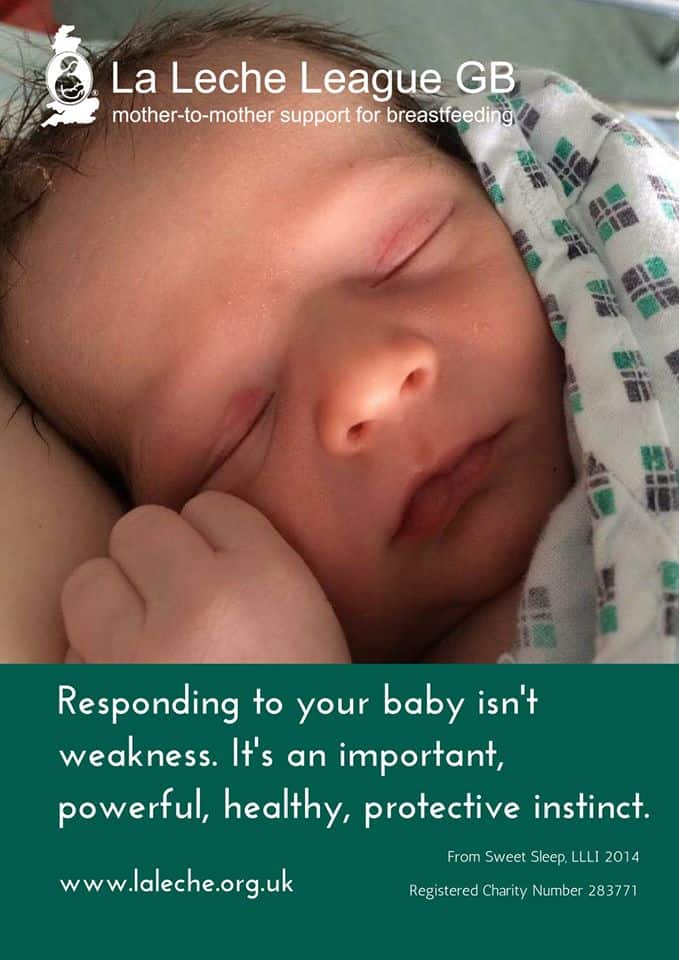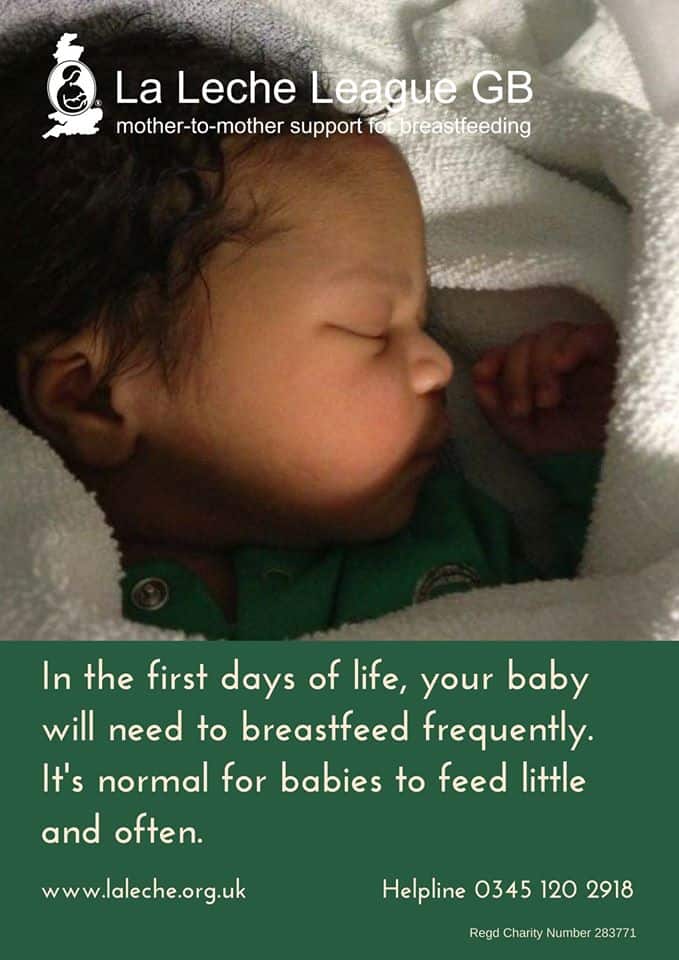All babies need to be fed little and often in the early days. A baby needs to feed frequently, and may or may not offer feeding cues. Trying to visualise numbers can be a distraction, and we have taken the decision to stop using our milk volume posters because we were concerned they might lead people to look at numbers instead of the things they can observe.
LLL seeks to give clear information on how to tell if your baby is getting enough milk.
LLL Resources
Signs of effective feeding in the early days
Positioning & attachment
Beginning breastfeeding
Comfortable breastfeeding – easy read
Is my baby getting enough milk?
My baby needs more milk
The following posters show normal behaviours for healthy, breastfed newborn babies. They are available to download for free from our Shop:
Breastfeeding concerns
Occasionally there is reason to be concerned about a baby’s weight gain or the way he is breastfeeding. Here are some signs that your baby may not be getting enough milk at the breast:
- If your baby has not regained his birth weight by two weeks of age
- If baby is passing less urine and pooing less frequently than described above, or his poos remain dark, then seek additional support and give more milk. Older babies may have bowel movements less frequently
- If baby is nursing fewer than eight to twelve times in 24 hours in the early weeks
- If baby is not waking to nurse at night
- Your baby is never satisfied after feeds
- Breastfeeding is very painful all the way through a feed
- You don’t feel signs of your milk coming in after day three
If you are concerned about your baby or s/he shows any of these signs, seek help with breastfeeding from your healthcare team and La Leche League.
Find LLL support here or call our national helpline on 0345 1202918.
Any if the following are signs of dehydration and the need to seek medical help immediately:
- less than two wet nappies in 24 hours from the third day
- listlessness
- lethargy
- weak cry
- skin loses its resilience (when pinched it stays pinched looking)
- dry mouth, dry eyes
- the fontanel (soft spot) on the head is sunken or depressed
- fever
This list is not exhaustive and we stress that you should consult your Doctor, Midwife, Health Visitor, or other healthcare provider if you have any concerns about the health of your baby. Breastfeeding support can continue alongside any necessary medical treatment. A La Leche League Leader (breastfeeding counsellor) can provide further information on breastfeeding management. Get LLL support here.





